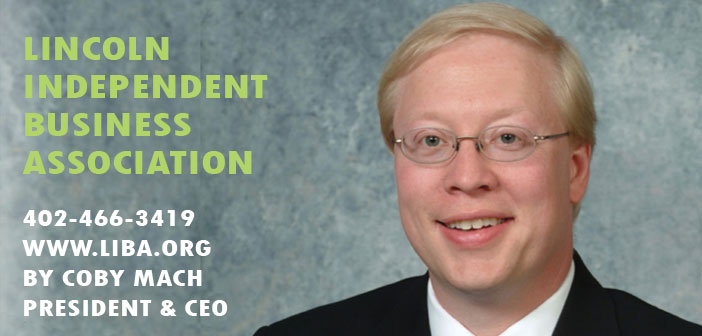LPS Should Lower Its Levy
The following statement was presented to the Lincoln Public Schools Board of Education by the LIBA School Liaison Committee.
This year’s proposed LPS Budget contemplates an increase in spending of $22.6 million — an increase equal to about 6%. LPS officials attribute this increase in spending, at least in part, to an estimated growth in enrollment of almost 950 students across all grade levels. Accounting for that growth in student enrollment plus inflation would suggest a budget increase of only 3.25%. Instead, the proposed total general fund budget spends $402.4 million, much of the funding for which is derived through property taxes. And while school staff and elected officials may tout the fact that the overall tax levy will remain relatively flat, the fact is that Lincolnites pay more money every year as property values rise, with no hope for tax relief.
Lincoln residents and members of the Lincoln Independent Business Association (LIBA) are very supportive of their public schools. Bond issue after bond issue for construction and renovation of our schools has been approved and each has been supported by LIBA. Each bond issue that passes represents an affirmative decision by taxpayers to pay more so that we can expand the reach of our public schools.
Lincoln taxpayers and LIBA have not balked at the district’s willingness to pay our teachers good salaries. As reported by the Nebraska State Education Association in a publication from November of 2015, starting salaries for public school teachers in Lincoln are higher than in any other school district in the state of Nebraska at almost $42,000 per year, plus benefits. The same publication reported that Lincoln Public Schools also pays the highest maximum salaries for teachers in the state. And the district has committed to giving our teachers raises year in and year out, including a 3.18% increase this year. This year’s raise alone results in an additional $7.8 million cost to taxpayers.
By nearly every measure, Lincoln is a community that supports its public schools, both financially and otherwise. By the same measures, the members of the Lincoln Independent Business Association have been supportive at nearly every turn.
And yet year after year our elected school board members refuse to work to find ways to give back to taxpayers. Five years ago, LPS collected a little more than $160 million in property taxes from Lincoln residents. This year, the district plans to collect more than $201 million — an increase in taxes collected of more than 25% over that five year period. Even as property values throughout the city rise, the LPS tax levy remains at its absolute maximum level. This means Lincoln taxpayers pay more of their hard-earned dollars to the district, regardless of whether their household incomes improve. With school district property taxes comprising more than 60% of our property tax burden, the fact that LPS cannot find even the slightest reduction in its general fund levy has left taxpayers wondering who’s looking out for them.
On behalf of its 1,350 members and all Lincoln taxpayers, LIBA asks that very question: Who’s willing to look out for Lincoln taxpayers? Where are the elected officials with the courage and candor to push school staff to strive for new efficiencies, and to make the right choices to control spending and reduce the general fund levy for the benefit of our larger community?
With this year’s proposed budget, the total spending by the Lincoln Public Schools District will exceed $1 billion. There is little doubt that school board members have a duty to represent the best interests of our students. But as elected officials you also have a duty to look out for the taxpayers and the families who fund our education system.
LIBA studies and promotes these types of issues that are important to businesses and our community. If you have an interest in joining LIBA, please call me at (402) 466-3419. LIBA membership is not restricted to just businesses. We also have “individual” memberships for those who want to help influence our local government decisions.
For more information on LIBA, visit Liba.org.

